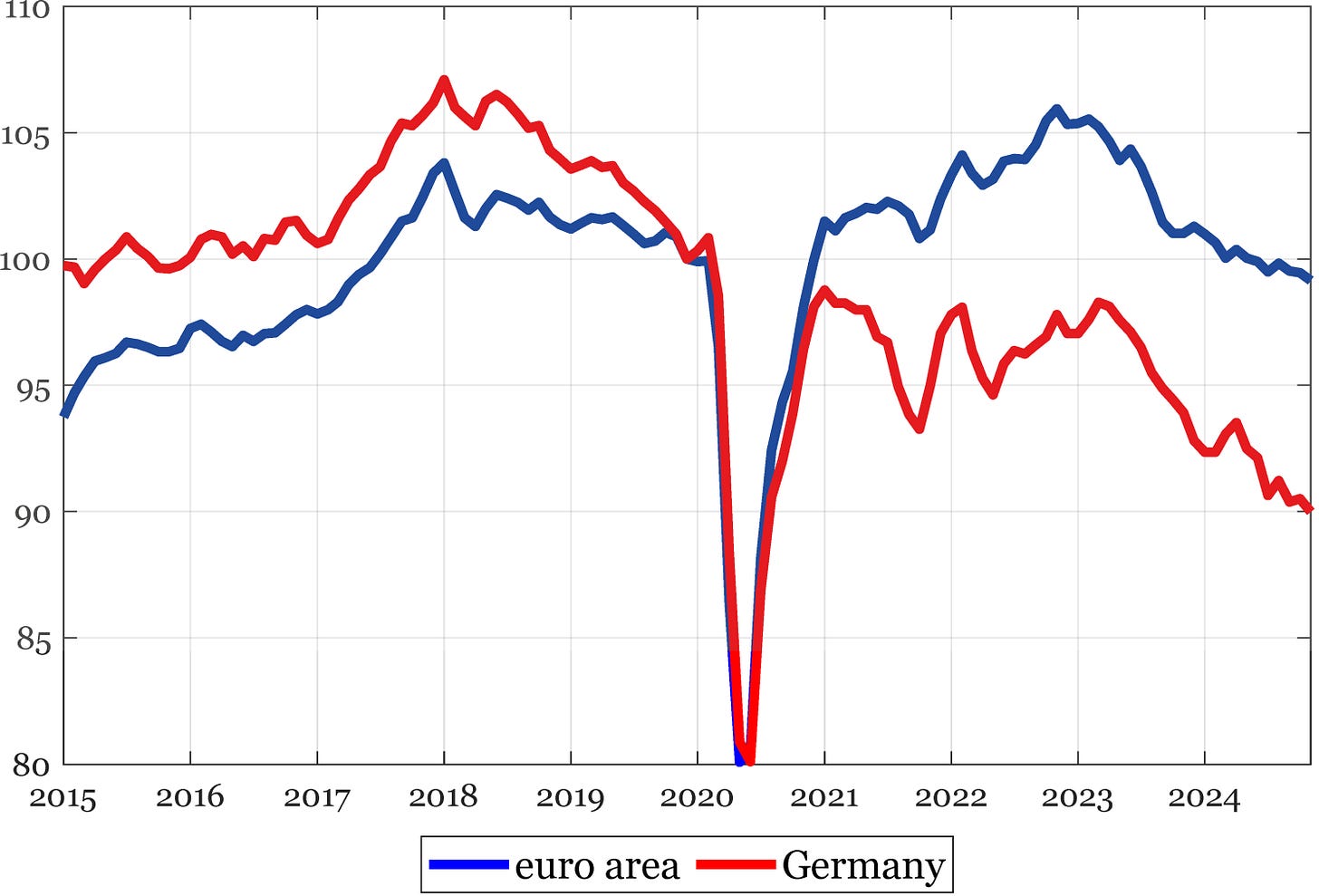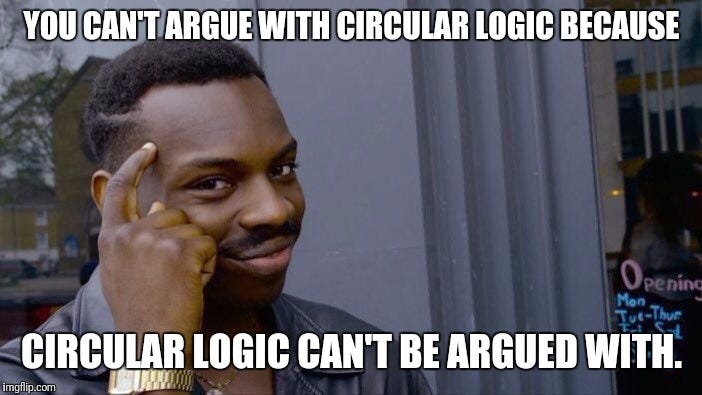Suicide Pact: Germany's New Coalition Deal
Locking Europe’s industrial heart into a fantasy-fueled energy collapse
In the middle of Trump’s tariff threats, the Eurozone looks like the stable option. But beneath the surface, Europe’s economic core is quietly destabilizing itself from within. With little notice from the international press, Germany is once again shooting itself in the foot. It’s all there in the new coalition treaty between the center-left SPD and the conservative CDU, a document that’s about to further dismantle Germany’s industrial base.
What makes these negotiations so extraordinary is the balance of power: the SPD, which secured just 16.4% of the vote, now has the CDU, which won 22.6% (or 28.6% including its Bavarian sister party, the CSU), by the throat.
Here’s why: the CDU campaigned on a clear promise to uphold the debt ceiling. But after the snap election, it broke that promise almost immediately, going as far as to amend the constitution in order to take on €500 billion in new debt.
If coalition talks had failed, a second snap election would’ve torched the CDU, given the credibility collapse this move triggered. And since the CDU’s Friedrich Merz is hell-bent on becoming chancellor, the SPD can dictate the terms from now on.
The AfD, which came in just behind the CDU with 20.8%, was excluded from the talks entirely, thanks to the establishment’s unwavering firewall against the right. As a result, Merz signed on to a slow-motion wreck for Europe’s industrial heart.
The Nuclear Taboo
Over the past two decades, Germany ramped up wind and solar, shut down its nuclear fleet, and used natural gas as the glue to hold it all together. The result: soaring electricity prices and the start of an exodus of energy-intensive industry.
The CDU had campaigned on at least reviewing a return to nuclear. But there’s not even a review clause in the coalition treaty. The technology that once powered one of the world’s most advanced industrial economies has been erased entirely from Germany’s energy future.
This, despite a clear offer from the industry itself. Ahead of the negotiations, the German nuclear trade association, Kerntechnik Deutschland (KernD), urged the incoming government to reconsider. In their words:
It is high time to make the right decision now for a stable and sustainable energy policy. Because deindustrialization, excessively high electricity prices, dependence on electricity imports and the uncertain supply situation must end now!
KernD is offering the new federal government the opportunity to take the future into its own hands and stop the deindustrialization of Germany. KernD's member companies are on hand with expertise and energy to help.
The message couldn’t have been clearer, but in the end, the SPD got its way.
The only reference to nuclear power in the entire coalition treaty is a vague aside about fusion, which will be regulated “outside of the nuclear regime.” However, fusion is less a serious energy source and more a sci-fi fantasy that’s been “just around the corner” for decades. But if fusion weren’t speculative enough, the coalition has pinned hopes on another untested marvel.
👀 Reading this from a forwarded email? You can get The Brawl Street Journal straight from the source. It’s free…
Running Heavy Industry With Kites
Enter Flugwindkraft. Airborne wind power is a system that aims to harvest strong, consistent winds at higher altitudes using tethered kites.
In the upper layers of the atmosphere, typically between 200 and 400 meters, wind conditions are more stable. The rule of thumb is: the higher you go, the stronger and more consistent the breeze. Based on this, systems like “SkyPower100” have been designed to generate power using a kite tethered to a ground-based winch.
The kite climbs into the sky, pulling on a cable attached to a drum on the ground. As the cable unspools, it spins a generator, creating electricity. Once the cable is fully extended, the system changes mode. The kite is re-angled to reduce drag, and the cable is reeled back in using a small amount of electricity. Then the process starts over.
If it sounds like a science fair project, that’s because in a way, it is. Airborne wind systems have been tested in various forms for years. None have reached commercial viability.
And yet, Germany’s new energy strategy includes this technology—still in the pilot phase—as part of the plan to stabilize the grid and power the world’s third-largest economy.
Obviously, it’s extremely unclear whether Flugwindkraft will ever contribute meaningfully to power generation. The systems are mechanically complex and error-prone. Their legal status under aviation law is still unresolved. And scaling them would require vast open areas, something Germany doesn’t exactly have in abundance.
Even if they’ll be adopted, utilities will need a backup plan while they wait for a technician to untangle a kite in mid-winter. The coalition has an ambitious one.
Subsidizing The Exit
It wants to stimulate the construction of up to 20 gigawatts of new gas-fired capacity by 2030. That’s a massive number. For reference: Germany’s entire current fleet of gas plants stands at 31.4 GW. The plan implies a capacity increase of nearly 70%.
And here’s where the paradox sets in: energy-intensive industrial giants like BASF and ArcelorMittal are already scaling back production in Germany because of high electricity prices: about €0.20 in Germany, versus just €0.07 per kilowatt-hour in the U.S. and €0.08 in China. That’s an eviction notice disguised as a price gap.
It’s hardly surprising Germany’s overall manufacturing output decreased by about 10% since 2021.

No business-minded operator is going to build expensive backup capacity when the core customer base is leaving.
That’s why the word “stimulate” is doing heavy lifting in the coalition treaty. It means the government, i.e. taxpayers, will be footing the bill. These new plants won’t be market driven but politically entangled. That’s an unstable foundation for anyone making long-term investment decisions.
But it gets better. Or rather, worse.
In an effort to stop industry from leaving altogether, Berlin wants to introduce an Industriestrompreis: a subsidized electricity rate for big industrial players. Who pays for that? Again, the taxpayer. Whether it will work is anyone’s guess. One thing is certain:
System costs will rise, and Germany’s dependence on LNG imports will deepen, especially with no deal in sight with Russia.
And we’re still not done.
Hydrogen of All Colors, Logic of None
The coalition still clings to the fantasy of switching from natural gas to hydrogen. But Berlin now seems to understand that there simply isn’t enough “green” hydrogen—made from renewables—available, neither domestically nor globally. So they’ve embraced a new solution: hydrogen of “all colors”.
Translation?
Germany will import hydrogen made from natural gas to replace natural gas. A fuel that is more expensive to produce, more expensive to transport, and less efficient to use.
All in the name of progress. This kind of circular madness could only come from a committee.
100,000 GPUs, 0 kilowatts
At the same time, the coalition dreams of making Germany a global hub for artificial intelligence. Their plan: launch an “AI offensive” with 100,000 GPUs. But AI data centers require massive amounts of electricity. And with power prices only heading higher, the effort is doomed from the start.
Sure, Berlin could try to subsidize this sector too. But companies that actually build things will locate their data centers where electricity is cheap. After all, the cost of AI services inevitably trends toward the cost of the underlying infrastructure.
That infrastructure will never stand in Germany under this energy regime.
The only European country with even a shot at becoming a viable AI hub is France, thanks to its nuclear fleet.
So where does that leave us?
Energy subsidies will be baked into the state budget without any corresponding rise in productivity or growth. The state has become the guarantor of an energy system that can’t pay for itself.
If this madness continues, Trump’s tariffs will be the least of Germany’s problems. Bloomberg recently titled “The Euro Is Emerging as Alternative Safe Haven Along With Bunds.” But once markets realize that the German state is now underwriting a structurally unviable energy model, the safe-haven premium will start to erode.
Build to Break
The coalition treaty reads like the work of people who know the system is breaking but are too committed to their own mythology to stop.
Rather than admit the energy transition has failed, Berlin is layering subsidy on top of subsidy, fiction on top of failure. It’s scrapping nuclear, backing unproven kite tech, underwriting fossil gas, and subsidizing the customers it has priced out. All while pretending this is a sustainable model for a modern industrial economy.
The result is a system that’s expensive, fragile, and built to serve a shrinking set of users. At the heart of it all is political cowardice: a CDU desperate to stay in power, and an SPD desperate to stay in the past.
Anyone pricing German credit: the energy transition isn’t just an environmental story. It’s a core macro input that’s eroding the very foundation of Europe’s “safe haven” status
Germany is no longer a pillar of stability. The cracks are widening, and too much time has already been lost. This coalition treaty doesn’t just reflect a failure to course-correct. It actively locks the country into an energy and industrial crisis that will inflict long-term damage. By the time the consequences are undeniable, the exit ramps may be gone.
A safe haven built on subsidy, denial, and shrinking output isn’t safe at all. And as Europe’s core cracks, the periphery splinters.
Share this with the last person who said “German engineering” with a straight face!
People in boardrooms, energy desks, and hedge funds keep forwarding this. You can either keep getting it secondhand or subscribe now!
Already subscribed? Thanks for helping make BSJ quietly viral.








What a Train Wreck!!!
Oh Dear.
Profligate & Stupid…..a Toxic Concoction…
If I was a German, I would be furious. As an outsider, I can only lament for them. The usual Germanic zealotry for their chosen ideology (this time its a bizarre combination of environmentalism and liberalism in a free-market wrapper, but with statist control over everything), is yet again driving the country off the edge of the cliff, and no one is pumping the breaks.
To quote a movie, "Why can't you just be normal???"